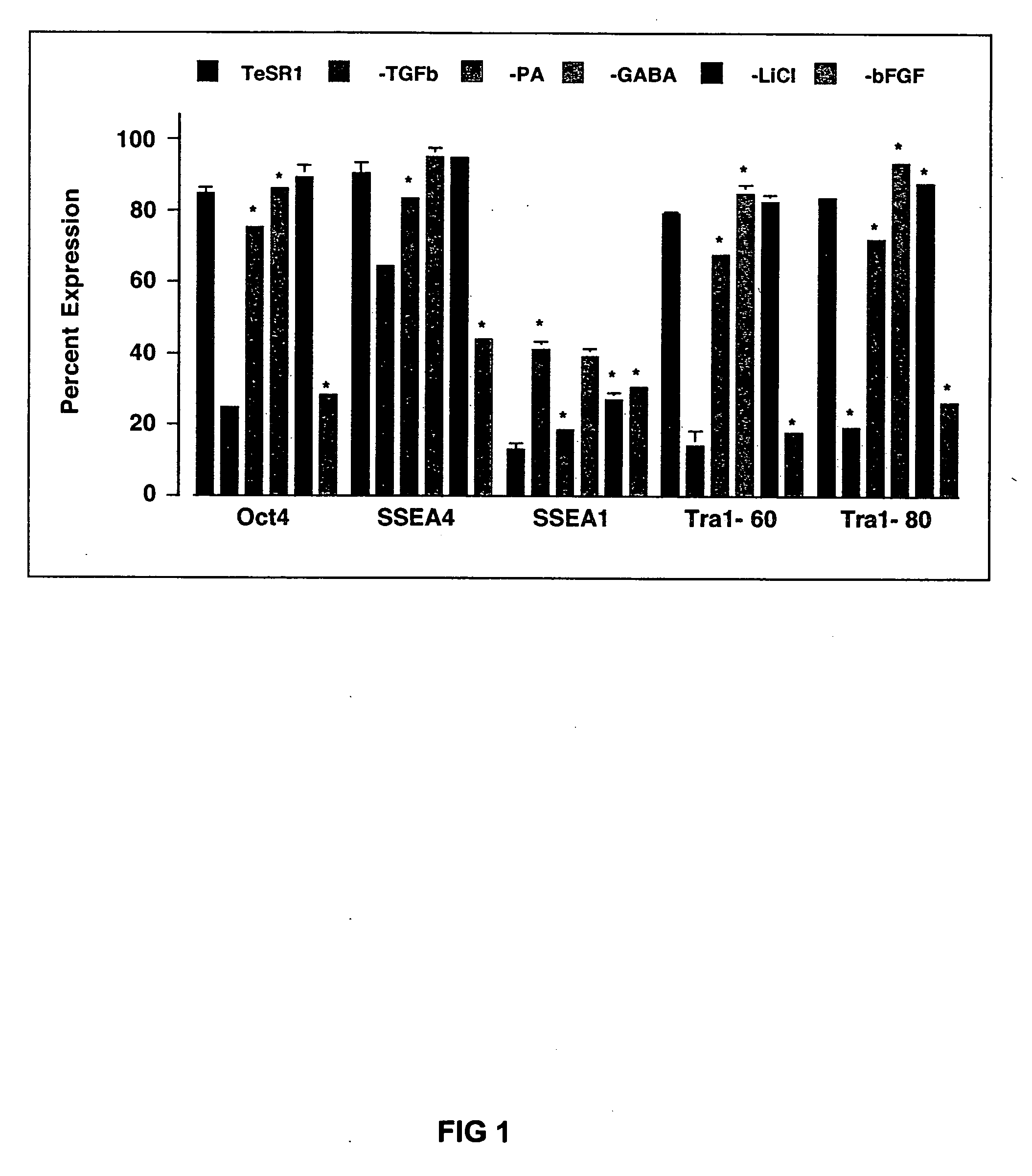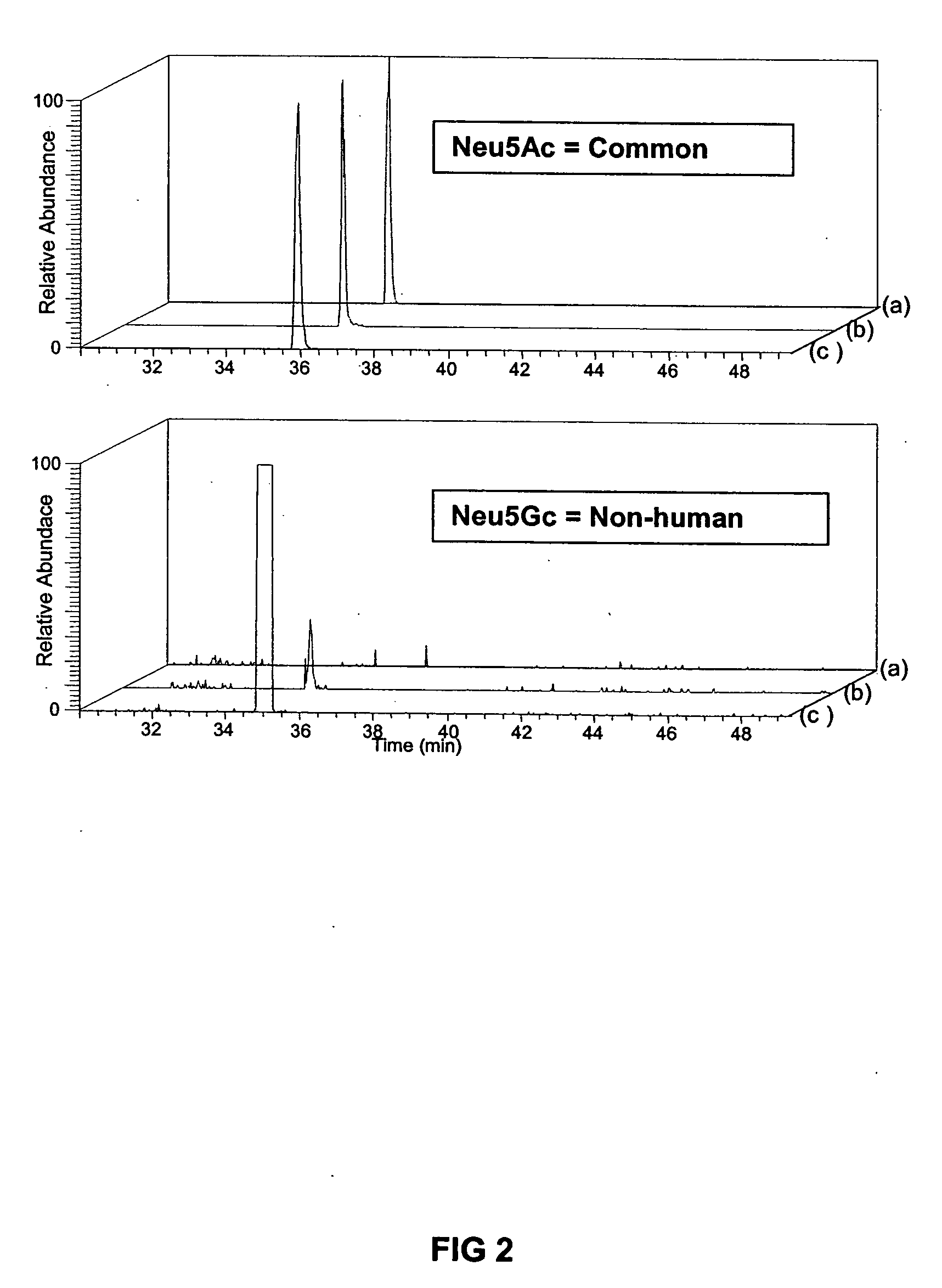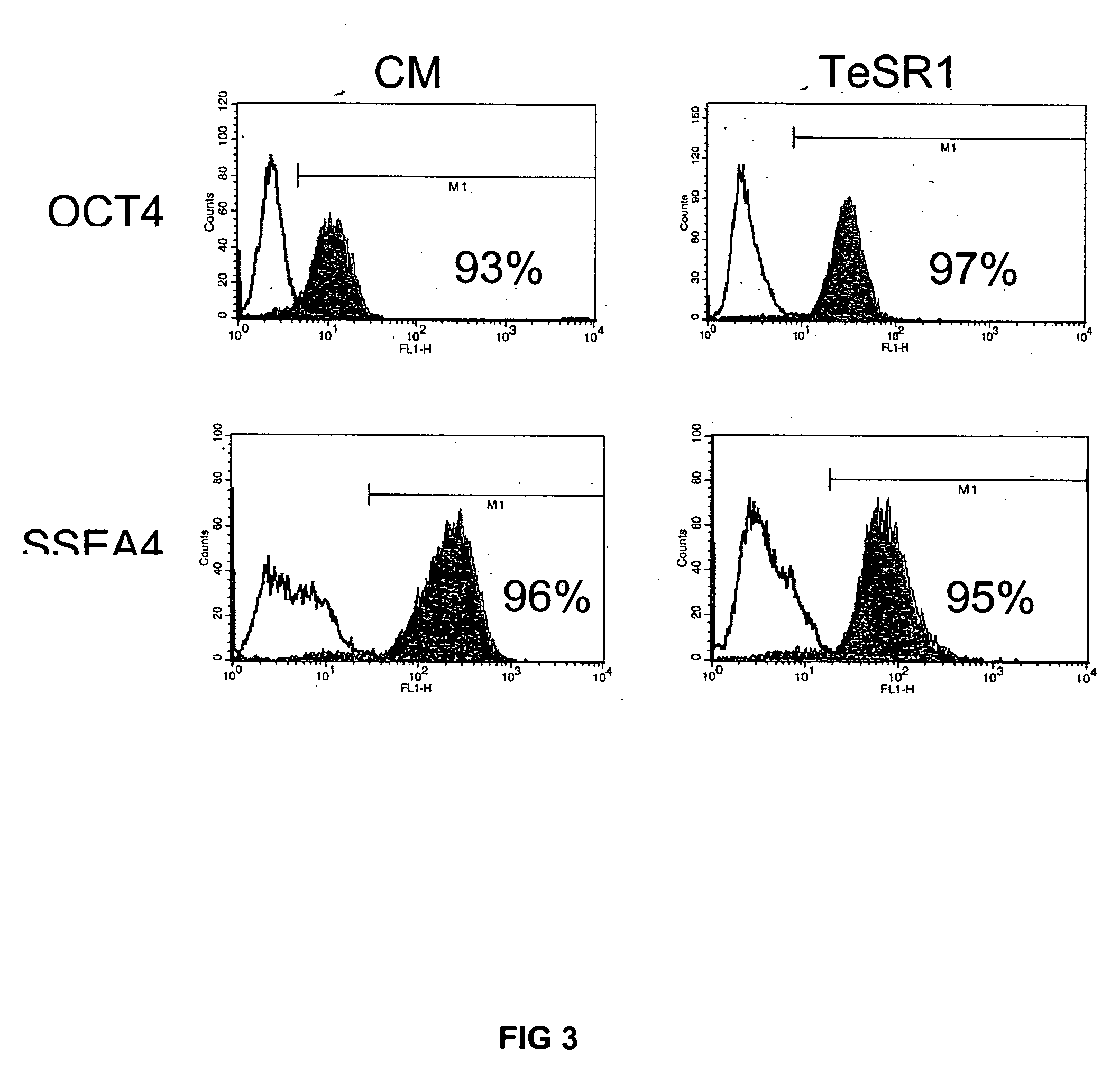Medium and culture of embryonic stem cells
- Summary
- Abstract
- Description
- Claims
- Application Information
AI Technical Summary
Benefits of technology
Problems solved by technology
Method used
Image
Examples
examples
[0025] The constituents of TeSR1 medium, which was used for all cultures described here unless otherwise indicated, is set forth in Table 1 below. Our preliminary experiments suggested that undifferentiated human ES cell proliferation was optimal at a pH of 7.2, an osmolarity of 350 mOsMol, and an atmosphere of 10% CO2 / 5% O2. These conditions were used for all subsequent cultures described here.
[0026] Cells of human ES lines H1, H7, H9, and H14 cells have all proliferated robustly in TeSR1 for 11, 7, 25, and 17 passages respectively (2-6 months). The karyotypes were confirmed normal for cell line H14 after 7 passages, and H9 after 8 and 21 passages. Teratoma formation was confirmed for H1 and H9 after 11 and 20 passages.
[0027] It has been suggested that prior ES cell cultures are less than optimal because of the presence of Neu5Gc, a sialic acid not made by humans. Because the human matrix components collagen, fibronectin, laminin and vitronectin eliminated the final animal produc...
PUM
 Login to View More
Login to View More Abstract
Description
Claims
Application Information
 Login to View More
Login to View More - R&D
- Intellectual Property
- Life Sciences
- Materials
- Tech Scout
- Unparalleled Data Quality
- Higher Quality Content
- 60% Fewer Hallucinations
Browse by: Latest US Patents, China's latest patents, Technical Efficacy Thesaurus, Application Domain, Technology Topic, Popular Technical Reports.
© 2025 PatSnap. All rights reserved.Legal|Privacy policy|Modern Slavery Act Transparency Statement|Sitemap|About US| Contact US: help@patsnap.com



